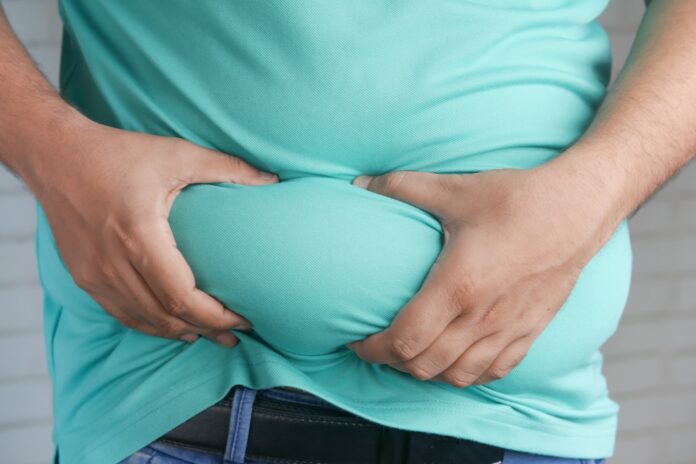Losing weight without exercise can be more challenging than when combined with physical activity since exercise plays a crucial role in burning calories and increasing metabolism. However, there are still several strategies you can employ to help lose weight without exercise.
Here are 10 tips to lose weight fast without exercise:
- Create a calorie deficit
To lose weight, you need to consume fewer calories than your body burns. Calculate your daily calorie needs based on your age, gender, weight, height, and activity level. This will give you a starting point for creating a calorie deficit.
Aim to reduce your daily calorie intake by about 500-750 calories, as this can lead to a safe and sustainable weight loss of 1-2 pounds per week. Remember to prioritize nutrient-dense foods to ensure you’re getting essential vitamins and minerals while cutting calories.
- Portion control
Controlling portion sizes is crucial for weight management. By using smaller plates and bowls, you can visually trick yourself into thinking you’re eating more. It’s also helpful to practice mindful eating by paying attention to your body’s hunger and fullness signals. Eat slowly, savor each bite, and stop eating when you feel comfortably satisfied rather than overly full.
- Eat a balanced diet
A balanced diet is essential for overall health and weight management. Include a variety of food groups in your meals, focusing on lean proteins (such as chicken, fish, tofu, or legumes), fruits, vegetables, whole grains, and healthy fats (like avocados, nuts, and olive oil). These foods provide essential nutrients, fiber, and protein, which can help you feel fuller for longer and support weight loss.
- Stay hydrated

Water plays a vital role in weight loss. It helps to suppress appetite, supports digestion, and boosts metabolism. Drink an adequate amount of water throughout the day. Aim for at least 8 cups (64 ounces) daily, but individual needs may vary.
Research indicates that incorporating water into your mealtime routine can have a positive impact on weight management. One study discovered that drinking water prior to a meal led to a decrease in food consumption, although it did not significantly affect feelings of fullness.
Another study revealed that consuming 1 pint (568 milliliters) of water before a meal resulted in reduced calorie intake, decreased hunger, and increased feelings of fullness and satisfaction.
Moreover, replacing calorie-dense beverages like soda or juice with water can potentially enhance these effects even further.
- Limit liquid calories
Sugary beverages like soda, energy drinks, and fruit juices are high in calories and may contribute to weight gain. By replacing these drinks with water, unsweetened tea, or black coffee, you can significantly reduce your calorie intake. If you enjoy flavored beverages, opt for infused water or herbal teas without added sugar.
- Mindful eating
Mindful eating involves being fully present and aware of your eating experience. By slowing down and savoring each bite, you can appreciate the flavors and textures of your food, and it allows your body to register feelings of fullness more accurately. Avoid distractions while eating, such as watching TV or using electronic devices since this can lead to mindless overeating.
- Get enough sleep

Sufficient sleep is crucial for weight management. Lack of sleep may disrupt hormones that regulate hunger (ghrelin) and fullness (leptin), leading to increased appetite and cravings, especially for high-calorie foods. Aim for 7-9 hours of quality sleep each night to support your weight loss efforts.
Furthermore, chronic sleep deprivation and elevated stress levels can heighten the risk of various health conditions, including type 2 diabetes and obesity.
- Reduce stress
High levels of stress may trigger emotional eating and increase the production of cortisol, a hormone associated with weight gain. Find healthy ways to manage stress, such as practicing relaxation techniques like meditation, deep breathing exercises, or engaging in activities you enjoy. Regular exercise, although not in your specified criteria, can also be an effective stress reducer.
- Optimize your environment
Your environment greatly influences your eating habits. Remove unhealthy, high-calorie snacks from your home and replace them with healthier options like fresh fruits, vegetables, nuts, or yogurt. When healthy options are readily available, you’ll be more likely to make nutritious choices.
- Track your progress
Keeping a food journal or using a calorie-tracking app will help you stay accountable and increase awareness of your eating habits. By recording what you eat, you can identify patterns, track your progress, and make adjustments as needed.
The Bottom Line
Losing weight without exercise is possible but may require extra diligence in managing your diet and lifestyle. Adopting simple lifestyle habits can contribute to weight loss, even without following conventional diet or exercise plans. Strategies such as using smaller plates, practicing mindful eating, staying hydrated, and avoiding distractions during meals may make a significant difference.
Additionally, focusing on protein-rich and fiber-filled foods can aid in weight management. It’s advisable to implement these changes gradually, experimenting with one technique at a time to find what works best for you. By making small, sustainable adjustments, you can achieve remarkable long-term weight loss results.


